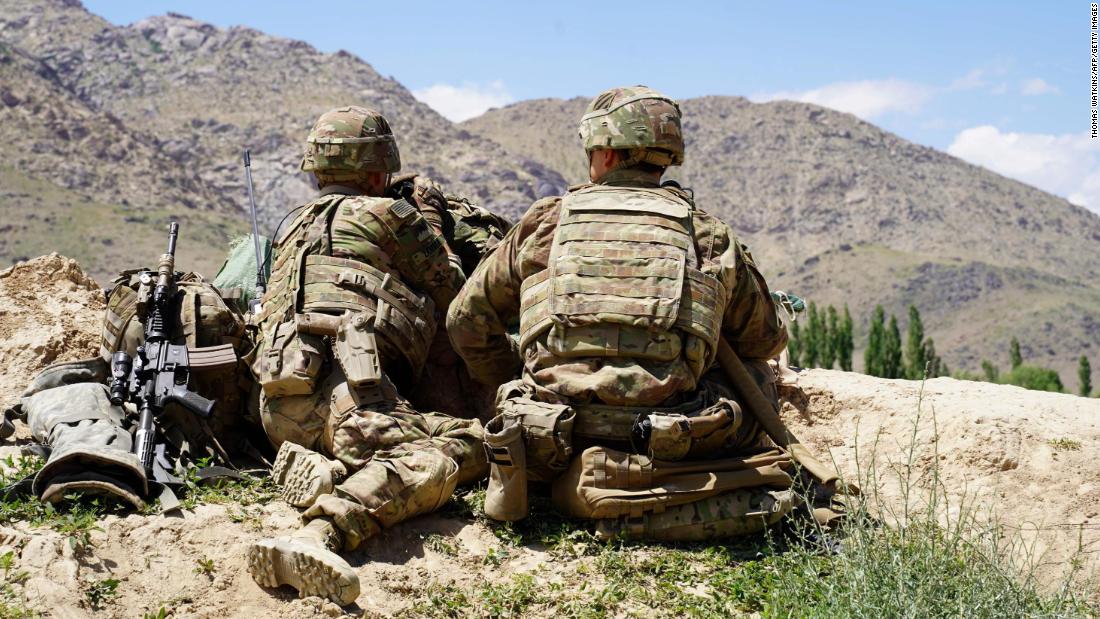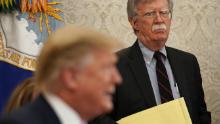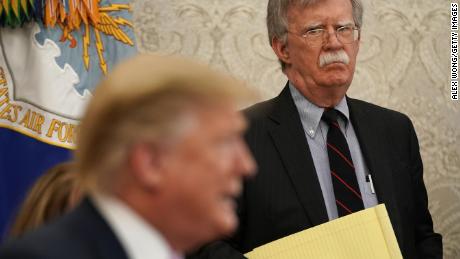Trump denies being briefed on Russian bounty intelligence
CNN previously reported that Russian intelligence officers for the military intelligence GRU recently offered money to Taliban militants in Afghanistan as rewards if they killed US or UK troops there, according to a European intelligence official. US intelligence concluded months ago that Russian military intelligence offered the bounties, amid peace talks, and Trump was briefed on the intelligence findings and the White House’s National Security Council held a meeting about it in late March, according to the Times, citing officials briefed on the matter.
A US official with knowledge of the matter confirmed to CNN on Sunday that there was intelligence indicating money was transferred, but it is not clear how verified the intelligence in question was or who exactly the representatives of this Russian unit approached — top leaders or commanders of field units located to the coalition forces.
There was discussion as far back as February and March in the US intelligence community and among the top military commanders about the Russian operation to assess the intelligence and what exactly was happening, the US official told CNN. There were some efforts at protecting US forces because of the intelligence, the source also said.
In March, most US forces were pulled back from field operations because of the Covid-19 pandemic. It is not yet clear if the deaths of any US forces in combat can be tied to the plot, the source with knowledge of the matter said.
In comments to CNN on Saturday, the European intelligence official was unclear as to the precise Russian motivation for the attempted bribes, but said the incentives had, in their assessment, led to coalition casualties. The official did not specify as to the date of the casualties, their number or nationality, or whether these were fatalities or injuries.
According to the Times, the Trump administration held expanded briefings about the intelligence assessment last week and shared information about it with the British government, whose forces were also believed to have been targeted.
House Speaker Nancy Pelosi and Senate Minority Leader Chuck Schumer, both of whom are members of the “Gang of Eight” in Congress that receives top intelligence reports, each said Sunday that they were not briefed on the intelligence reports about the attempted bribes.
“I was not briefed on the Russian military intelligence but it shows that we need in this coming defense bill, which we’re debating this week, tough sanctions against Russia which thus far Mitch McConnell has resisted,” Schumer said.
Pelosi alleged in an interview with ABC that Trump “wants to ignore any allegation against Russia,” and said she doesn’t know if the President was briefed on the reports, but that if he wasn’t, “what does that say about the concern that those who brief the President have about not going anywhere near the Russia issue with this President?”
“Who did know and when?” Cheney wrote, adding that the White House should also answer the question: “What has been done in response to protect our forces & hold (Russian President Vladimir) Putin accountable?”
Former White House national security adviser John Bolton said later Sunday that Trump’s denial shows that the President’s “fundamental focus” is not on the United States’ national security.
Director of National Intelligence John Ratcliffe said in a statement on Saturday that he had “confirmed that neither the President nor the Vice President were ever briefed on any intelligence alleged by the New York Times in its reporting yesterday.”
He added: “The White House statement addressing this issue earlier today, which denied such a briefing occurred, was accurate. The New York Times reporting, and all other subsequent news reports about such an alleged briefing are inaccurate.”
The Russian Embassy in Washington, DC, on Friday denounced the Times report as “baseless allegations” that have led to death threats against Russian diplomats in Washington and London. The Taliban also rejected the report.
There have been more than 2,400 total deaths of US service members since the start of America’s longest war in 2001. Last year was the deadliest in five years for the US in Afghanistan, with 23 service members killed during operations in the country in 2019.
This story has been updated with additional reporting and context.
CNN’s Nick Paton Walsh, Veronica Stracqualursi and Radina Gigova contributed to this report.
![]()




